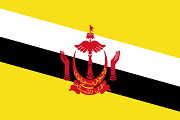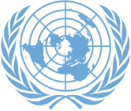Mr. President, I extend my congratulations to you and to the people of the Czech Republic on your election. I offer my very best wishes in all your work during the coming session.
I would also like to thank my colleague, His Excellency Mr. Han Seung-soo of the Republic of Korea, our regional neighbour, for his leadership of the General Assembly over the past year.
Also, may I congratulate the Government and the people of the Swiss Confederation on their decision to join the United Nations. They have long given very distinguished support to the institutions of world peace, and it will be good to work with them here.
At the same time, I would like to welcome the coming membership of our neighbour, the Democratic Republic of East Timor. In doing so I would like to thank all the members of the United Nations Transitional Administration in East Timor. We are very grateful for their fine work there. I assure you that we will be doing our best to consolidate those United Nations efforts for peace in our region. It has been a pleasure working with President Gusmão and his new Government. As they plan their future development, we look forward to continuing this work, not only bilaterally as friends and neighbours, but also through the long-standing process of consultation and cooperation we have established within our regional association.
I mention this aspect of our regional work for a specific reason. It is the main point I wish to make at this time. The process I refer to has been at the heart of the work of the Association of South-East Asian
Nations (ASEAN) since its founding well over 30 years ago. It is not confined to our neighbours in South-East Asia. It also involves dialogue partners from all over the world as well as all the permanent members of the Security Council. It now covers the whole spectrum of cooperation: political, economic, functional and, since the end of the cold war, all aspects of security cooperation. In other words, it is a comprehensive
approach to modern regional and international affairs. It comprises many layers of cooperation bound
together by one institution, the United Nations. An enormous amount of work has gone into it. That is why
we place equally enormous value on it. We believe it offers a secure way forward for every citizen we
represent.
I make this point for reasons that deeply concern every one of our colleagues here. In the past year we have been made brutally aware of one terrible fact. The whole process of consultation and cooperation is now threatened. The opportunities it presents to our people are profoundly at risk. Like our fellow Members of this Organization, we have had to accept a grim reality. There is a dark side to the international life we share today: to globalization, to development, to progress, to knowledge and even to the beliefs we cherish, whether they be religious, political or social.
We have been taken to this dark side. It is a pitiless, bleak and miserable landscape. There is no
path through it along which nation-States can safely proceed. It is, in that sense, a terrifying vision. In
South-East Asia we have responded to it as such. We have deeply mourned the innocent victims of terrorism in America, Africa, Europe and Asia. We have condemned all who took those lives.
We are, however, trying to move beyond condemnation. We have taken many immediate and practical short-term measures. We have committed ourselves to long-term action. We have had to do this.
Without security and stability, there is little chance for us to implement the far-reaching programme of development we have set for ourselves. So, in no way can we permit those who engage in any form of terrorism to succeed.
By this, I mean any group that tries to drag our affairs across to their dark side: not just extremists, no matter what cause they claim to represent, but also those who seek to corrupt international systems of
trade, commerce, and banking or who wilfully destroy our environment or who trade in human misery. They stand in the way of the deepest interests of the people we represent here, the people for whom the United Nations is the direct opposite of the dark vision of the terrorist. It offers them a totally different side of world affairs: one that rejoices in the diversity of peoples, cultures and beliefs; one that at all times seeks the consensus that comes out of dialogue and negotiation; and one where informed direction is given to the great changes that are sweeping through all societies — in other words, the bright side of international affairs lit by a beacon of hope. That is how we see this Organization.
We want our regional efforts to help fuel this beacon. We want them to complement the work of the United Nations.
So, put simply, we see only one permanent agenda item here: How can the world body give hope
and purpose to the lives of every family in every community in each of its 190 Member nations?
That is why we strongly support the efforts being made by the Secretary-General to express our purpose in that way, not in the language of confrontation that was heard throughout the last century or in the appalling vocabulary of terrorism, but in the human terms offered at the Millennium Summit.
In short, our hopes include an end to historical injustices, especially those which our brothers in
Palestine continue to suffer, and a determined effort to help communities earn a good living in a responsible manner. Those were the basic hopes I believe we all had at the turn of the century. We do not wish to see them set aside. So we appeal to all our fellow Members to make sure they are not forgotten. We urge everyone to use the mechanisms we have here to that end.
Whenever there are grave threats to international peace, we are confident that the members of the
Security Council will guide us well. We acknowledge the vital role they have in ensuring that international
principles are upheld by every Member. In this, they have our full support, and we will contribute to their
work in whatever way we can.
But the Council is still only one part of the work of the United Nations. There are many other tasks: above all, the peaceful work that binds all our layers of cooperation together.
We do not wish to see the Organization’s attention directed solely towards the dark side of international life. Building a secure framework for international cooperation involves a long, consistent
and comprehensive process. Like any process, it has to be constantly refined. We accept this. We do not feel, however, that the events of the past year mean that it has to be abandoned and redesigned. In saying this, I believe we share the deepest hopes of all developing nations.


